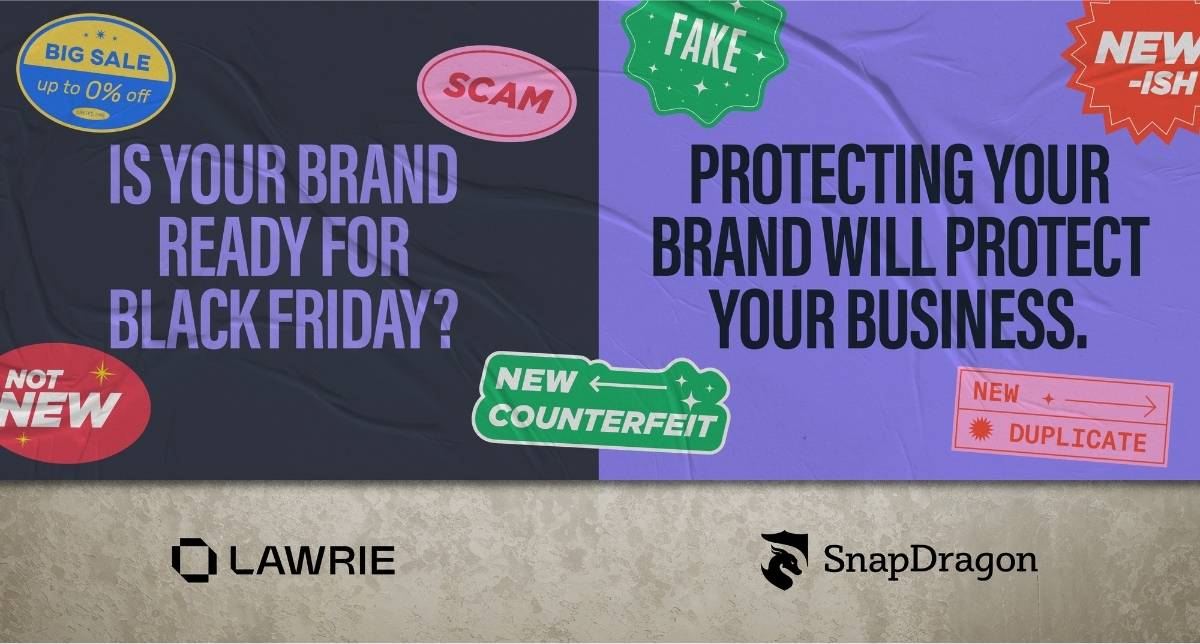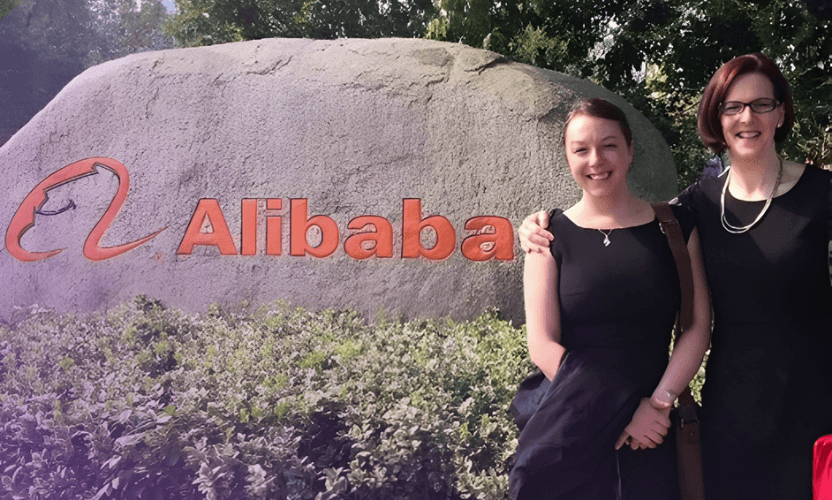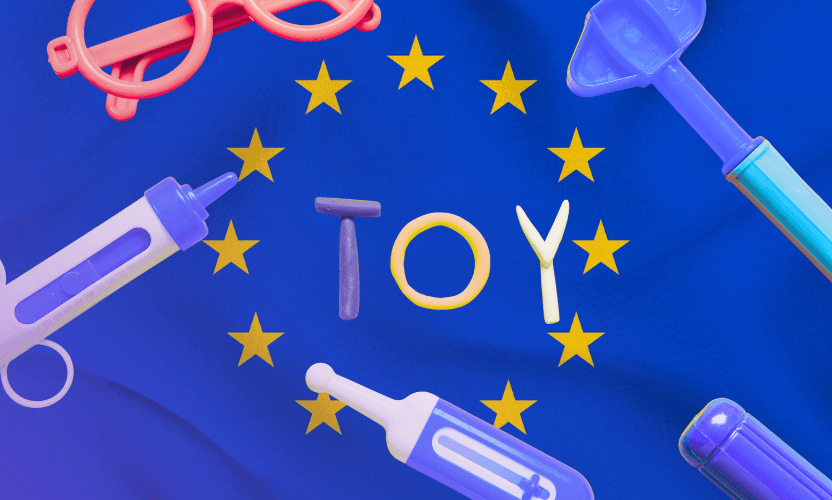Protecting your brand will protect your business.
Black Friday is traditionally the busiest shopping weekend of the year and 2023 was no different with FashionUnited reporting UK consumers spent a record £1.04 billion online. According to research by Finder, a whopping 26.9 million adults (51% of UK adults) stated they intended to participate in the sales frenzy, up from 39% in the previous year.
What drives this frenzy is the lure of heavily discounted products, ripe for picking in the lead-up to the holiday season. This boost in sales is great for many retailers but can be detrimental to some brands who are often exposed to more IP threats during this time.
Black Friday is the perfect storm of factors leading to increased IP threats:
Impulse buying – With countdowns, one-time offers, limited editions, and stock running out, offers during Black Friday are often time-sensitive leading to shoppers feeling the pressure just to buy buy buy. But in doing so, they are likely to be less scrupulous and miss the warning signs of counterfeit goods.
Marketing volume – Overwhelming marketing noise can enable bad actors to exploit the event and promote infringing and counterfeit products alongside genuine offers. The sheer volume of activity can make it tricky to distinguish real from fake.
Emphasis on low prices – Shoppers in the mood for discounts will actively seek the lowest price on the market providing an easy target for counterfeiters. This can also lead to a proliferation of grey market goods. Grey market goods are genuine products of a brand which are sold at discounted prices and then snapped up by unauthorised re-sellers who distribute them through their own channels, not only exploiting the original brand but also creating confusion amongst consumers.
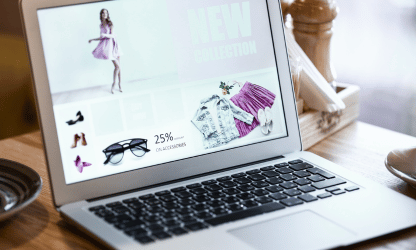
What types of IP threats and brand exploitation are common during Black Friday weekend?
Trade mark, including counterfeits and impersonation: Competitors can leverage the Black Friday frenzy by using similar brand names or slogans, hoping to ride on the coattails of established brands and mislead customers in the rush. Furthermore, by registering a similar domain name to a reputable company, scammers can infringe upon IP by setting up sites which have no products on sale.
Copyright: Artwork such as images, prints and shapes can also be used without permission or modified slightly to mislead consumers. Photographs or logos associated with products from legitimate companies or sellers can also be stolen to promote fake or counterfeit goods.
Patent infringement: Patent infringement is the act of making or selling a product that uses patented features without the permission of the patent holder. It is a violation of the exclusive rights granted by a government authority to the inventor of a new product or process. This can lead to legal action, including lawsuits and potential damages for the unauthorised use of the patented technology. It is important for inventors and companies to protect their patents and enforce their rights to prevent infringement and protect their intellectual property.
Design infringement:
Design rights protect the visual design of objects that are not purely functional. These rights cover the aesthetic aspects such as shape, pattern, and colour, ensuring that the creator’s unique design is legally protected from unauthorised use or imitation. Design infringement occurs when someone copies or uses a protected design without permission, violating the Intellectual Property right and potentially causing financial and reputational harm to the original creator.
If your brand is not protected it can lead to a whole host of problems for your business including:
Revenue Loss: Counterfeits divert sales away from your genuine products, leading to significant revenue loss.
Brand Reputation Damage: Poor-quality knockoffs can tarnish your brand’s reputation, as customers may associate your brand with inferior products.
Customer Trust Erosion: Once customers encounter fake products, they may lose trust in your brand, resulting in lost loyalty and future sales.
Legal and Financial Consequences: Counterfeits can lead to costly legal battles and damage your relationships with retailers and partners.
Market Share Decline: Persistent counterfeiting can erode your market share, giving competitors an edge and diminishing your brand’s influence in the market.
These problems are obviously best to be avoided so how can you protect your customers and brand?
Lawrie and SnapDragon are here to help.
Here are some top tips for protecting your brand this Black Friday:
1. Understand the different types of intellectual property:
Familiarise yourself with the various types of intellectual property, including patents, trade marks, designs, copyrights, and trade secrets. Each type of IP offers different protections for your brand and its assets.Lawrie, can guide you through your rights, available protections and the process for getting protection in place.
2. Identify your intellectual property:
Take stock of the intellectual property assets associated with your brand, such as logos, designs, products, and processes. Determine which assets are most valuable and may require protection.
3. Register your intellectual property:
Consider registering your trade marks, designs, patents, and/or copyrights (where possible) with the relevant government authorities to establish legal ownership and protection of your IP assets. This can help deter potential infringers and provide you with legal recourse in case of infringement.
4. Monitor for infringement:
Stay vigilant and monitor the market for any unauthorised use of your intellectual property, including design infringement, trademark infringement, and patent infringement. Keep an eye out for rogue websites, counterfeit products, and other forms of IP infringement. Partnering with SnapDragon can help you keep an eye out for any infringement online.
5. Draft an internal IP policy for circulation:
with clear steps on how to identify online brand threats and how to manage them.
6. Enforce your rights:
If you suspect that your brand’s intellectual property rights have been infringed upon, discuss this with Lawrie right away to assess your options for taking action. This may involve sending cease and desist letters, pursuing legal action, or working with brand protection agencies to combat infringement.
7. Engage your customers:
Pre-warn your customers that fakes may be out there during the event. Help customers identify potential fakes with some cheat sheets and encourage them to report fakes to you so you can take them down.
By educating yourself on intellectual property laws and taking proactive steps to protect your brand’s IP assets, you can safeguard your brand from counterfeits and other forms of intellectual property infringement.
What should I do if my brand is being infringed?
If you find that your brand is being infringed during Black Friday, there are several steps you can take to address the issue.
First and foremost, it’s important to gather evidence of the infringement. This may include screenshots of the offending websites or social media posts, customer complaints, or any other information that shows the unauthorised use of your brand.
Next, take advice from Lawrie regarding the infringement and how to address the issue. It may be that it is necessary to send a cease-and-desist letter. If this does not resolve the issue, your IP attorney can advise on the options to escalate the issue if needed.
Most online sales platforms have anti-IP theft policies in place, which require all sellers to adhere to strict rules around selling products they have a right to sell. These policies outline processes for reporting IP infringements and they will also support with enforcement of IP rights such as takedown procedures. You can find SnapDragon’sguides to removing fakes from the following platforms.
SnapDragon can also help report any infringement identified for your brand:
Reassure your customers that you are taking steps to address infringements and remove counterfeit products from marketplaces. Transparency can help build trust with your customers and show that you are committed to protecting your brand.
By taking proactive steps to monitor, respond, and engage with your customers, you can safeguard your brand during the Black Friday weekend and beyond. Remember, protecting your brand is an ongoing effort that requires vigilance and a commitment to upholding your intellectual property rights.
For further information or advice please contact the experts, Lawrie and Snapdragon are ready to support you.
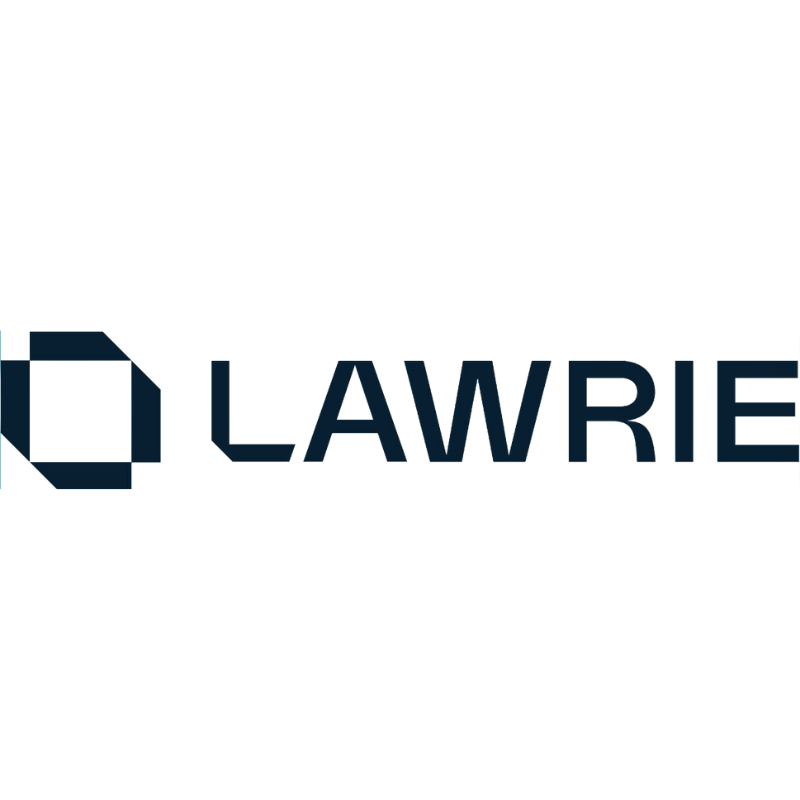
Lawrie – the Intellectual Property team for dynamic brands and forward-thinking minds.
At Lawrie, we understand the intrinsic value of your business name, logo and other brand assets and how critical it is to diligently manage an active portfolio of rights. That’s why Lawrie delivers far more than just generic trade mark registration services. We know how challenging it can be to understand the direction you need to take to protect your valuable brand assets. We provide the expert guidance and steadfast service your great business deserves. Our mission is to be the easiest intellectual property team to work with and to make IP a pain-free experience allowing you to fend off competition and secure a market-leading position.
#painfreeIP
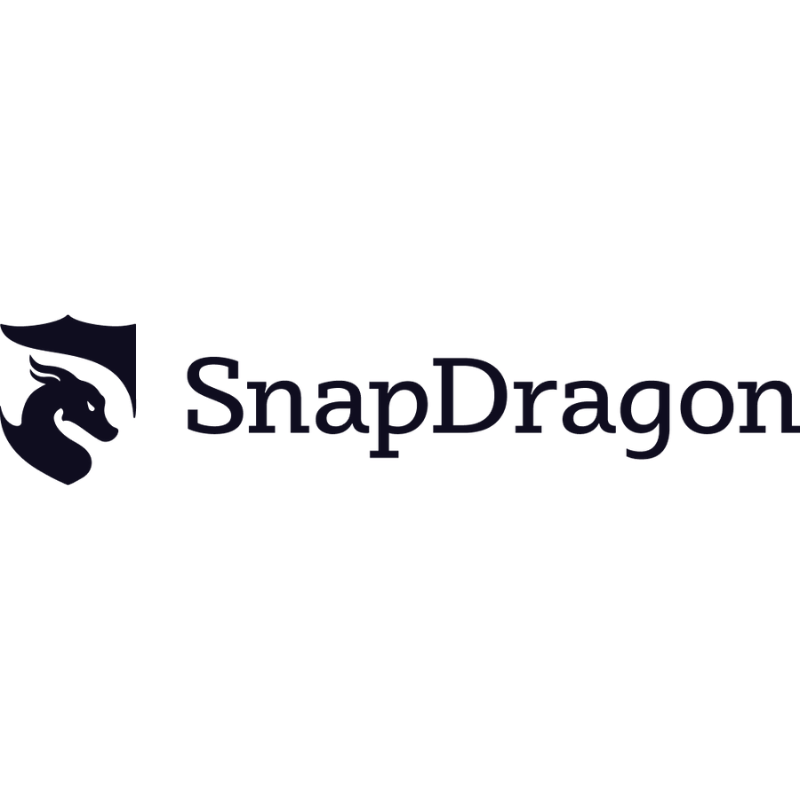
SnapDragon is your brand’s personal bodyguard.
Our robust brand protection services safeguard your valuable intellectual property, including trade marks, copyright, designs, and patents. We help businesses of all sizes combat counterfeiting, unauthorised sales, and wider brand exploitation, leveraging our advanced AI-powered software and expert team to monitor, detect, and enforce any intellectual property threats identified.
FAQ
Brand protection is the practice of safeguarding a company’s intellectual property, reputation, and overall brand image from various online threats such as counterfeiting, trademark infringement, cybersquatting, phishing scams, and unauthorised distribution of products.
In today’s digital age where consumers can quickly and easily access information online, it has become increasingly important for companies to proactively protect their brand from potential harm.
Domain protection is a valuable investment for any business that wants to safeguard its online presence and reputation.
When you register a domain name for your website, you are required to provide contact information that is publicly accessible through the WHOIS database. This means that anyone can easily look up information about your domain, including your name, address, phone number, and email address.
Unfortunately, this information can be exploited by scammers, spammers, and competitors looking to impersonate your brand online. To protect your domain and prevent unauthorised use of your brand name, consider investing in domain protection services offered by reputable providers.
Domain protection services typically include features such as domain privacy protection, which replaces your personal contact information in the WHOIS database with generic information to keep your identity anonymous.
Additionally, these services may offer domain monitoring to alert you of any suspicious activity related to your domain, as well as automatic renewal to ensure your domain remains secure.

